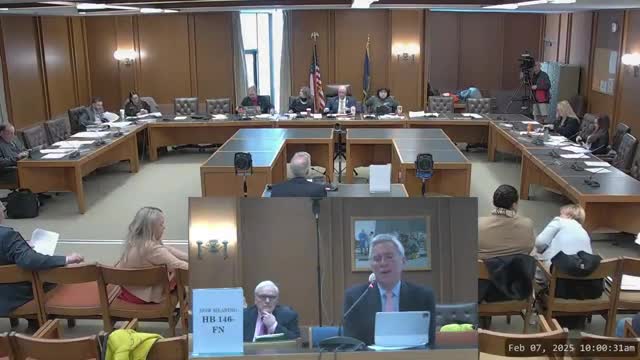Committee Hears Broad Testimony for Bill Letting Some Lifers Seek Parole at Age 60
Get AI-powered insights, summaries, and transcripts
Subscribe
Summary
Lawmakers and dozens of witnesses debated House Bill 638, which would allow certain inmates serving life without parole to be eligible for parole hearings at age 60 after at least 18 years served; supporters said it creates a narrow second look and may reduce incarceration costs, opponents raised victims’ concerns.
House Criminal Justice and Public Safety Committee members heard hours of testimony — much of it from survivors, advocates and the family members of long‑term prisoners — on House Bill 638, which would make some people serving life without parole eligible to request a parole hearing when they turn 60 if they have served at least 18 years and have no major conduct violations in the prior 10 years.
Representative David Muse (Portsmouth), the bill’s prime sponsor, told the panel the measure is not aimed at any one person but at the question of whether “there is a point where our need for retribution as a society can end.” Under the proposal, prisoners convicted of capital murder under RSA 630:1 would be excluded. Muse cited the state Department of Corrections fiscal note that estimated 15 inmates would have been eligible at the end of 2024 under the bill’s parameters, noting that the population and eligibility could shift slightly over time.
Supporters — including survivors of violent crime, forensic psychologists and advocacy groups such as Drop LWOP New England and the New England Innocence Project — said the bill would provide a carefully limited opportunity for review, not an automatic release. Alexandra Bailey, who described herself as a two‑time survivor, said national survey research and survivor voices often favor second‑look opportunities tied to rehabilitation, restorative processes and public‑safety analysis. Dr. Rishani Rees, a forensic psychologist and survivor, told the committee criminological research shows people ‘‘age out’’ of violent offending and that recidivism rates fall substantially with age.
Multiple witnesses used a specific incarcerated person — identified repeatedly in testimony as Gary Place — as an example of a person who supporters say has engaged in long‑term rehabilitation. Family members, ex‑colleagues and a number of former and current correctional staff described Place’s educational courses and mentorship inside prison and urged lawmakers to allow a parole hearing process for similarly situated people.
Opponents and some questioners urged caution and stressed that parole is a high‑bar, case‑by‑case process that already considers victims’ input and supervision and reentry planning. Representative Sarah Rhodes asked how reentry supports and supervision would operate for people released after decades behind bars; witnesses said parole processes require a plan and victims retain the right to participate. Sponsors said the parole board would continue to make final decisions about suitability and release.
Fiscal and policy details were raised several times. Muse noted an annual per‑inmate cost cited in the fiscal note of about $78,542 and argued that older incarcerated people often have higher health‑care costs. Several witnesses said the bill would not eliminate the governor’s power to commute or pardon but would provide an administrative parole avenue for review.
The committee heard personal stories across a wide range of views — from victims and survivors asking for accountability to advocates and clinicians citing research on aging and recidivism. Committee members did not take final action on the bill during the hearing. The debate underscored both the relatively narrow reach of the bill’s eligibility criteria and the strong feelings it raises among victims’ advocates, defense and innocence organizations, clinicians and family members of incarcerated people.
